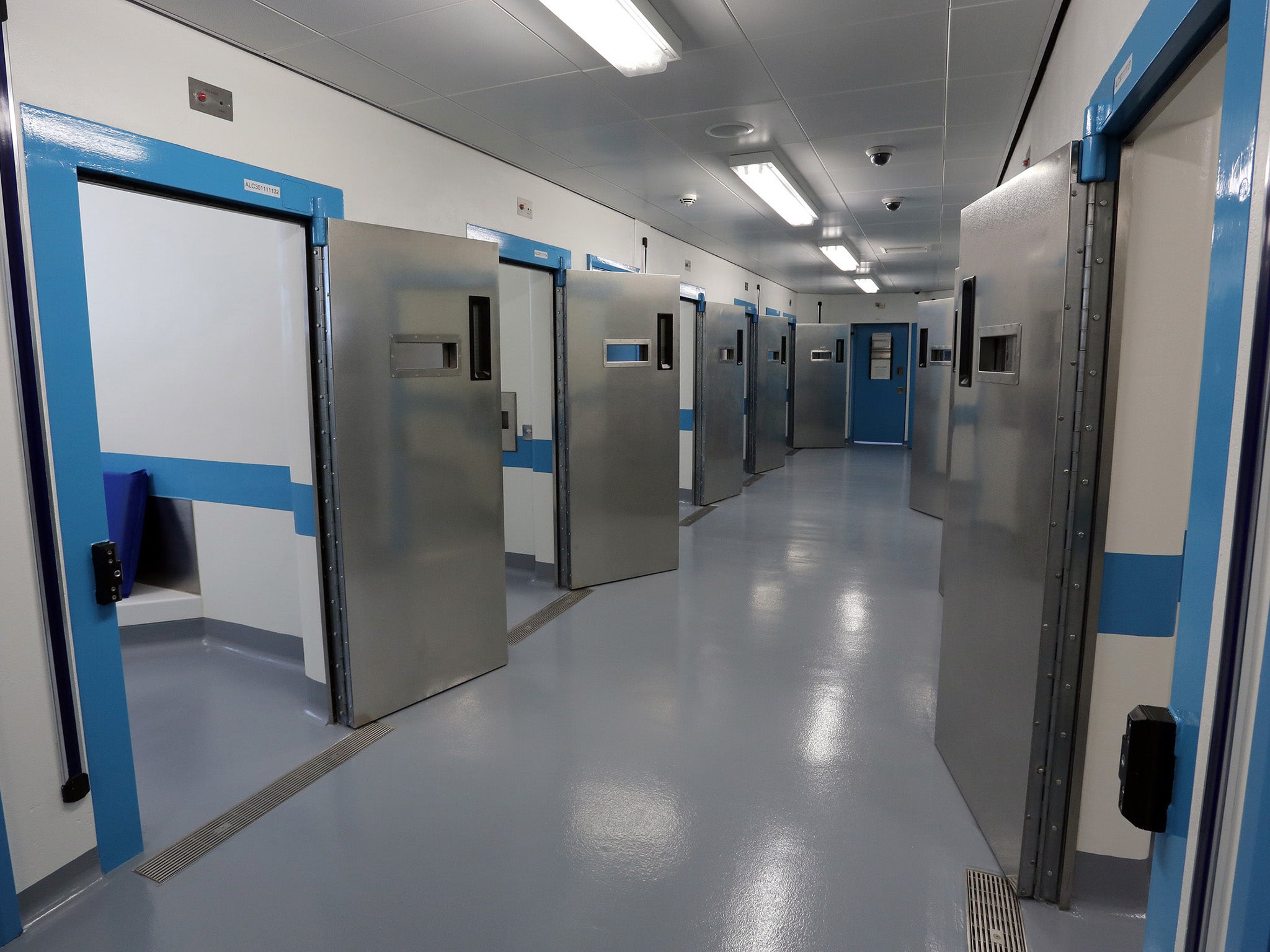Change law on police bail to stop domestic and sexual abuse victims being put at risk, government told
Exclusive: 2017 changes left victims ‘unnecessarily exposed to reprisals from suspects’, MP and peers warn

The government must change the law to ensure domestic and sexual abuse victims are not put at risk after reporting attacks, an MP and campaigners have said.
A letter seen exclusively by The Independent warned that changes made by the Conservatives had caused a steep drop in the use of police bail – and thousands of alleged sex attackers and violent criminals were released without any restrictions.
Labour MP Sarah Champion, who wrote the letter, said the changes had endangered survivors and could discourage them from reporting crimes to the police.
“The result has been that vulnerable survivors of domestic abuse, child sexual abuse and/or sexual violence are now unnecessarily exposed to reprisals from suspects, who are frequently known to them, if the suspect is released from custody while the police investigation is ongoing,” the letter said.
She called for the home secretary to use the Domestic Abuse Bill to create a legal presumption that alleged domestic abusers or sex attackers can only be released from police custody when bail conditions are in force.
These conditions limit the threat a suspect can pose, by confining them to one address, seizing their passport and banning them from contacting victims or entering certain areas.
“If the police are unable to put simple restrictions on suspects, survivors will live in fear of being contacted or visited by their abuser,” Ms Champion told The Independent.
“This is alarming when so many survivors of child sexual abuse know their abuser personally.
“Already the level of prosecution for these crimes is shockingly low – only 1.5 per cent of reported rapes are charged.
“The government needs to be building confidence in the criminal justice system, and keeping survivors safe is the first step to doing that.”
The letter, signed by the Centre for Women’s Justice, End Violence Against Women Coalition, Rape Crisis, Refuge and Women’s Aid, said the length of time that suspects can be kept on bail should also be extended to protect victims.
The call was backed by senior figures in the criminal justice system, including former chief crown prosecutor Nazir Afzal, Wiltshire Police’s head of public protection and three peers.
“This letter shows the women’s sector, police and parliamentarians speaking with one voice – the government has no choice but to listen and change the legislation to ensure the criminal justice system prioritises the safety of those reporting violent and sexual crimes,” Ms Champion said.
The new Tory measures also meant bail, where police can enforce restrictions on suspects’ movements and who they contact, could only be used when deemed “necessary and proportionate”.
HM Inspectorate of Constabulary found that in the six months after the limit came into force, the use of police bail plummeted by three-quarters – and 65 per cent in domestic abuse cases.
Inspectors warned that a drop across all offences suggested that police were “not protecting vulnerable victims the way that they should”, adding: “There was a change in legislation and it was lost in translation.”
A sample of around 3,000 people “released under investigation” between April and June 2017 found that 1,700 alleged violent criminals, 768 rape suspects and 31 who were questioned on suspicion of murder had been freed without conditions.

A police inspector can authorise initial bail for 28 days, and an extension of up to three months can be granted by a superintendent.
Any further extension for “exceptionally complex” investigations must be approved by executive-level officers.
The National Police Chiefs’ Council (NPCC) released guidance emphasising that pre-charge bail is a “legitimate tool” earlier this year.
It stated that officers deciding whether to apply bail conditions must take into account the need to protect victims and witnesses, and ensure public safety.
The document said police must warn victims and witnesses if a suspect is released under investigation, and provide advice about what to do if they are targeted.
Nicki Norman, the co-chief executive of Women’s Aid, said the guidance was a step forward.
“However, the Domestic Abuse Bill provides a further opportunity to strengthen police forces’ response and resolve the unintended consequences of previous reforms to pre-charge bail,” she added.
“We call on the government to act on the recommendations made by the Joint Committee on the Draft Domestic Abuse Bill and sector experts to safeguard victims.”
The committee called for the government to take the same measures called for in the letter, creating a presumption of bail and extending the time limit in domestic abuse and sexual violence cases.
In an official response published in July, the government said it was right to limit bail to prevent “serious negative impacts on suspects” and conditions can still be used where it is necessary and proportionate.
A spokesperson for the NPCC said: “We are concerned that a reduction in bail could mean missed opportunities to protect vulnerable people and put conditions on violent offenders that could prevent reoffending. We will continue to assess the effects of recent changes to the law and its implementation.”
A Home Office spokesperson said: “We continue to work with the police to ensure pre-charge bail conditions are being imposed where appropriate, including to protect victims and witnesses.
“The government is listening to the concerns that have been raised about pre-charge bail to understand the underlying issues and consider what further mitigations can be put in place.”
Subscribe to Independent Premium to bookmark this article
Want to bookmark your favourite articles and stories to read or reference later? Start your Independent Premium subscription today.



